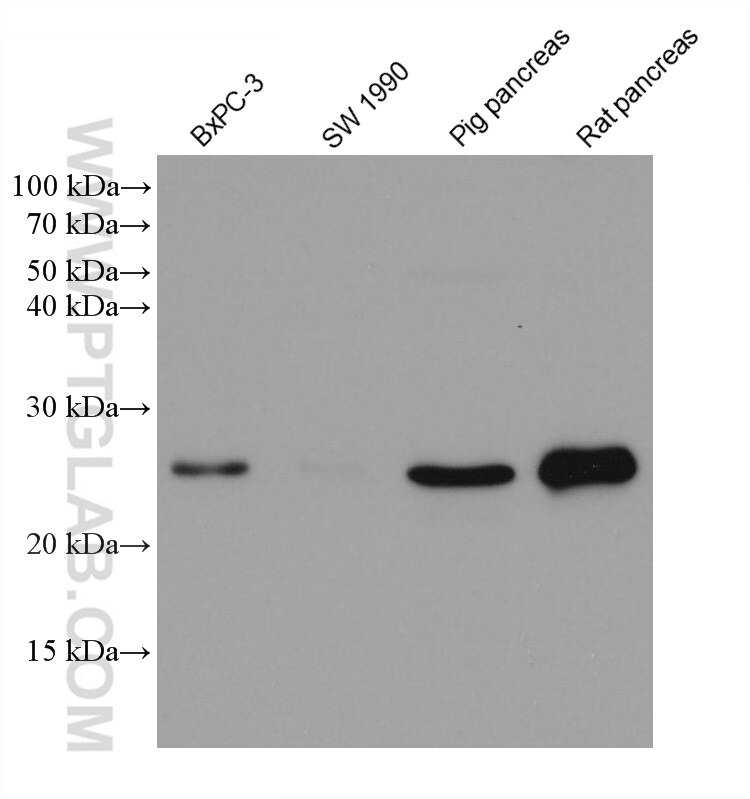MIST1 Monoklonaler Antikörper
MIST1 Monoklonal Antikörper für WB, Indirect ELISA
Wirt / Isotyp
Maus / IgG2a
Getestete Reaktivität
Hausschwein, human, Maus, Ratte
Anwendung
WB, Indirect ELISA
Konjugation
Unkonjugiert
CloneNo.
1E10B3
Kat-Nr. : 68092-1-PBS
Synonyme
Geprüfte Anwendungen
Produktinformation
68092-1-PBS bindet in WB, Indirect ELISA MIST1 und zeigt Reaktivität mit Hausschwein, human, Maus, Ratten
| Getestete Reaktivität | Hausschwein, human, Maus, Ratte |
| Wirt / Isotyp | Maus / IgG2a |
| Klonalität | Monoklonal |
| Typ | Antikörper |
| Immunogen | MIST1 fusion protein Ag18509 |
| Vollständiger Name | basic helix-loop-helix family, member a15 |
| Berechnetes Molekulargewicht | 189 aa, 21 kDa |
| Beobachtetes Molekulargewicht | 27 kDa |
| GenBank-Zugangsnummer | BC113394 |
| Gene symbol | MIST1 |
| Gene ID (NCBI) | 168620 |
| Konjugation | Unkonjugiert |
| Form | Liquid |
| Reinigungsmethode | Protein-A-Reinigung |
| Lagerungspuffer | PBS only |
| Lagerungsbedingungen | Store at -80°C. 20ul Größen enthalten 0,1% BSA. |
Hintergrundinformationen
Muscle intestine stomach expression 1 (MIST1), also named bHLHa15, is a secretory cell transcription factor that belongs to the basic helix-loop-helix superfamily. MIST1 is mainly expressed in serous secreted cells and essential for the development and maturation of secretory cells. Secretory cells lacking MIST1 exhibit structural and functional defects, including alterations in cytoskeletal organization and cell polarity and improper cell-cell junction. In healthy pancreata, MIST1 facilitates cell-to-cell communication, promotes acinar cell polarity, controls Ca2+ flux, promotes unfolded protein response (UPR) homeostasis, aids in vesicle assembly, and is required for regulated exocytosis. MIST1 was downregulated in pancreatic cancer tissues compared with normal or adjacent pancreatic tissues and lower MIST1 expression in pancreatic cancer cell lines than normal acinar cells (BxPC-3, PANC-1, SW 1990) (PMID:29859299). MIST1 is downregulated in the development of gastric cancer and in gastric cancer cells compared with SW620 cells (PMID:34149921).



